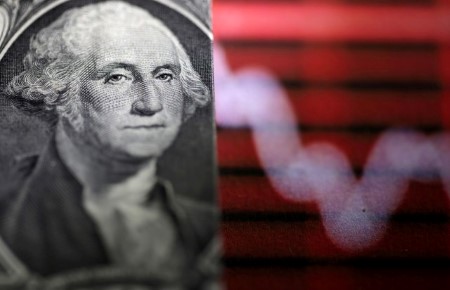




January Economic Update: Growth slows, prices rise
 DOWNLOAD
DOWNLOAD

Inflation Update: Up, up, and away?
 DOWNLOAD
DOWNLOAD

Quarterly Economic Growth Release: Growth takes on a slower pace
 DOWNLOAD
DOWNLOAD


Equities, bonds, ETFs drew in near-record amounts of cash in 2022: BlackRock

LONDON, Jan 9 (Reuters) – Investors ploughed USD 867 billion into ETPs (exchange-traded products) in 2022, the second biggest inflow after 2021’s record USD 1.29 trillion, despite a hugely volatile market environment, data from BlackRock showed on Monday.
ETPs across asset classes recorded inflows, with equity ETPs enjoying bumper inflows despite plunging global stocks, while a shift to rates-driven investing was seen in bond ETPs flows, despite central banks around the world tightening financial conditions to temper inflation.
“If you look at the market context for 2022, on the surface you would expect that the flows would have been more muted, because stocks and bonds declined by double digits compared to 2021,” Karim Chedid, BlackRock’s EMEA head of investment strategy for its iShares unit, said.
“But we have seen the second-best year for ETF flows on record, only behind 2021. This shows the acceleration of ETFs as an investment vehicle of choice in 2022.”
Exchange-traded products include exchange-traded funds (ETFs), exchange-traded notes (ETNs), and other products. ETFs are traded like shares and track an index, either via an underlying asset, or by synthetically replicating the returns using derivatives.
Last year marked the third-largest inflow into fixed-income ETPs on record, with flows of USD 266 billion.
The figures closely track the record-breaking USD 280 billion and USD 269 billion inflows into bond ETPs of the previous two years, though allocations have shifted significantly according to BlackRock.
Within fixed income ETPs, rate ETPs drove 68% of overall inflows in 2022, over three times the corresponding level in 2021, with over 90% of that going into US products, BlackRock said in its report.
EQUITIES
But investors were picky about what they bought. Inflows into investment-grade credit ETPs reached USD 40.1 billion, while high-yield credit ETPs recorded outflows of USD 5.6 billion.
There were also outflows from inflation-linked bonds and emerging-market debt ETPs, which reached USD 14.6 billion and USD 9.2 billion, respectively.
Major equity indexes plunged in value in 2022 as Russia’s war in Ukraine caused an energy squeeze and triggered soaring inflation. The S&P 500 index lost almost a fifth of its value while Europe’s STOXX 600 ended the year down 13%.
Despite this, equity ETPs saw the second-highest yearly inflows on record, reaching USD 598 billion, although this was below the USD 1 trillion seen in 2021.
“Within equities, flows were positive but still defensively tilted; for instance the sectors that saw the largest demand were healthcare, tech and utilities with a significant preference for these vs cyclicals,” Chedid said.
The picture was less positive for commodities, which recorded net outflows of USD 9.5 billion, even though oil and gas prices soared for most of last year.
Meanwhile, investors set a record for the biggest inflow into emerging market (EM) equity ETPs, snapping up USD 110 billion, up from USD 90.4 billion in 2021, with Chinese equities accounting for USD 63.7 billion of that.
“From a macro perspective, it has to do with the fact that a lot of the EM central banks already hiked rates before and are fundamentally in a better place than previous rate hike cycles,” Chedid said.
“Finally, the tailwind from China reopening late in the year helped accelerate this trend,” he said.
(Reporting by Lucy Raitano; Editing by Amanda Cooper and Alison Williams)
This article originally appeared on reuters.com





 By Reuters
By Reuters